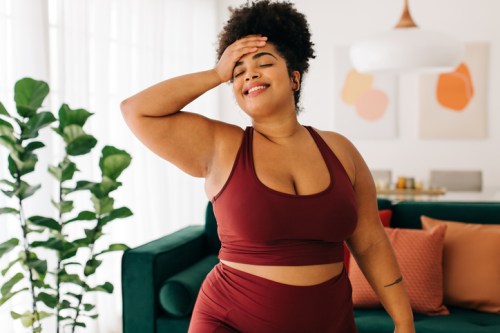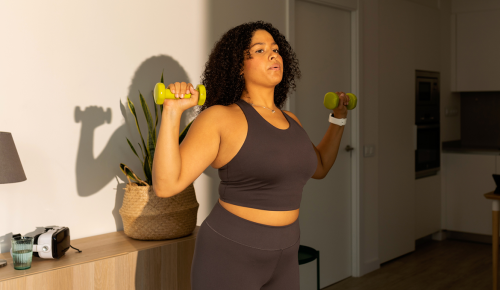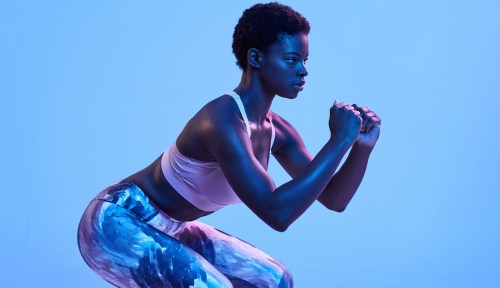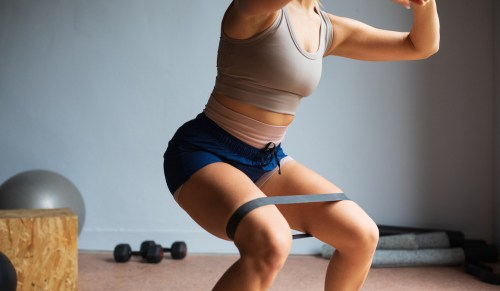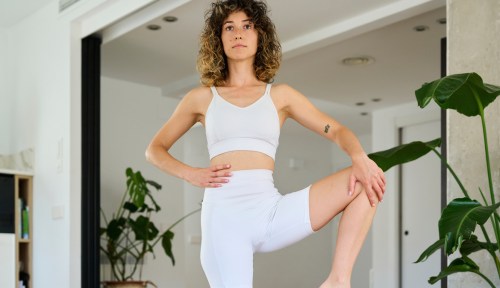Perhaps one of the lasting (albeit misguided) impacts of the “no pain, no gain” marketing approach to fitness is that it made pleasure seem like something you shouldn’t expect from a good sweat session. In truth, workouts that push you outside of your comfort zone can also make you feel good, like increasing your maximum strength. And there’s plenty of proof that low-intensity fitness can be both fun and beneficial. Hello, walking. However, when it comes to the basic question “should workouts be enjoyable?,” mental health experts say that the answer is complex.
Experts in This Article
Evan Lawrence, LMHC, is a licensed mental health counselor and certified personal trainer who specializes in combining mental health treatment techniques with physical health coaching. Evan is also the co-founder of a fitness class for mental health called Daily Defusion.
sports and exercise psychologist and personal trainer
In simple psychological terms, we’re far more likely to repeat movement styles we enjoy than movement styles we hate, says Evan Lawrence, a licensed mental health counselor and certified personal trainer. “Perception affects everything. If you like what you’re doing, you’re more likely to do it again. And seeing as one of the main ways to get the most out of exercise is to build consistency around it, there is certainly benefit from enjoying it,” he says.
Workouts that make you feel good play into self-determination theory, a framework for understanding human motivation first created in 1985. “Self-determination theory is based on the idea that motivation comes from three things: competence, autonomy, and relatedness,” says performance consultant Saara Haapanen, a PhD candidate in sports and exercise psychology as the University of Jyväskylä in Finland. Competence is your ability to perform an activity; autonomy refers to your freedom to choose that activity, and relatedness means your ability to do that activity in the company of others. When you have all three components in a single workout setting, you have the motivation “trifecta,” according to Haapanen.
Workouts led by these three qualities also make it easier for you to find your “why” for working out. For example, maybe you go to dance classes because you love the relatedness benefits you get from busting a move with your friends. Or, maybe you love going for a run because it makes you feel competent and autonomous in your body. “The best workout for you to do is the one that you enjoy, because you’re going to get it done. Motivation is something that doesn’t necessarily last, so you have to know your ‘why’ that you’re doing a certain behavior,” Haapanen says.
Of course, there’s also something to be said for chasing loftier fitness goals—like running a marathon or hiking a big mountain. In these cases, Haapanen says you really need to find your “why” so that when the going gets tough, you don’t quit. And you can still seek out those self-determination qualities—competency, autonomy, and relatedness in more physically taxing workouts.
That said, Lawrence points out that there’s minimal research when it comes to exercises that push the limits of what you can do. “Biologically, there are studies that show there is a benefit to working out at certain [challenging] intensities—although no dose-response relationship has been established—i.e. more intense exercise does not necessarily correlate to more benefit,” he says. The feeling of accomplishing a big goal dovetails into other, life-changing feelings—including a sense of satisfaction and self-confidence that can help fuel future goals, though.
In short… it’s complicated! As Haapanen and Lawrence both point out, the best workout is the one that keeps you coming back time and again. Ultimately, it’s up to you how to divvy up your exercise regimen so you’re experiencing pure joy and more complicated, anticipated satisfaction. “Make choices in relation to your goals. If you have a fairly specific physical goal you may have to make choices that prioritize the biological and not necessarily the enjoyment aspect,” says Lawrence. “However, if you are staying healthy and practicing self-care, then there is more flexibility to find a balance between the two.”
So like the majority of fitness advice, the answer to this one comes down to: You do you.
Find your joy with this fun dance cardio class:
Oh hi! You look like someone who loves free workouts, discounts for cutting-edge wellness brands, and exclusive Well+Good content. Sign up for Well+, our online community of wellness insiders, and unlock your rewards instantly.
Sign Up for Our Daily Newsletter
Get all the latest in wellness, trends, food, fitness, beauty, and more delivered right to your inbox.
Got it, you've been added to our email list.
